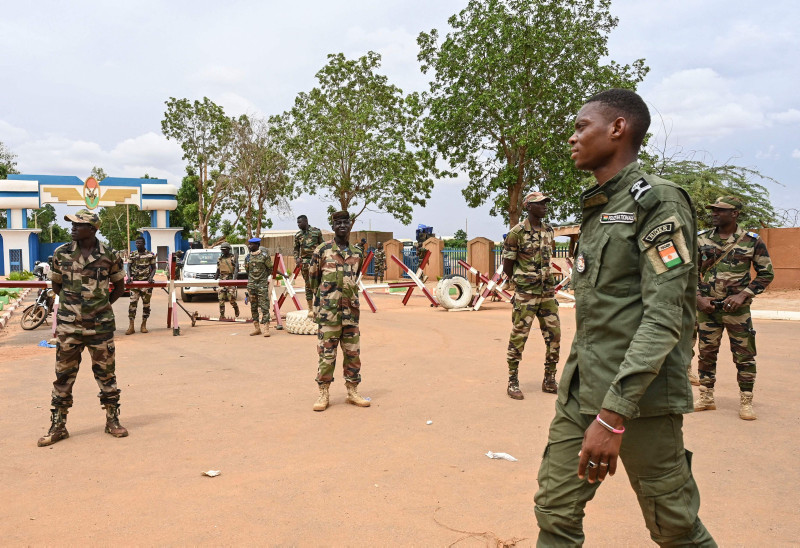(4 minutes read)
Niger’s murky political landscape continues to be grim with fear, uncertainty, and anger wrapped around the cauldron of complexities. Everyone is looking at the question: What is next? Yet no one has a clear-cut answer
Niger’s murky political landscape continues to be grim with fear, uncertainty, and anger wrapped around the cauldron of complexities. Everyone is looking at the question: What is next? Yet no one has a clear-cut answer. Will ECOWAS intervene militarily? Can a truce be brokered by the ruling military junta and ECOWAS members? Will civilian rule under incarcerated president Mohammad Bazoom back in power?
Read Also:
https://trendsnafrica.com/niger-feels-the-pangs-of-sanctions-a-resolution-still-looks-distant/
As hectic parleys are going on between ECOWAS members and other platforms elsewhere in the world, the threat of military intervention looms large. The statement of Abdel-Fatau Musah, ECOWAS commissioner was pertinent. He said recently that all member states except for those under military rule and Cape Verde have agreed to contribute troops for this standby force. In a threatening tone, he said that the ball was in the court of the junta, thereby conveying that the ECOWAS has all options up in its sleeves, a relatively harder stand against the overwhelming opinion of the grouping that military intervention should be the last option.
Read Also:
https://trendsnafrica.com/decoding-the-niger-crisis-imbroglio/
While the world is awaiting eagerly what could be next; Niger’s coup leaders are seemingly defiant. The international cry for releasing the incarcerated president has so far fallen on deaf year; the junta is defiant and seemingly veering around the concept its neighboring countries with military rule and Russia would come to its rescue.
In the meantime, former French President Nicolas Sarkozy predicted the certain failure of the perpetrators of the coup in Niger. At the same time, he hit out at the long-term maintenance of French military forces in the Sahel region. This he believes would have evoked anti-French sentiments in the Sahel region. He was categorical that any mission that dragged on ended up making things appear as an occupying force. He also argued for the immediate withdrawal of French troops from the Sahel region, particularly 1500 troops stationed in Niger.
Read Also:
https://trendsnafrica.com/au-and-ecowas-differ-over-intervention-in-niger-on-the-eve-of-the-summit/
The nomination of a new prime minister by the coup leaders last week appeared to signal the start of a transition to a new government. Prime Minister Ali Mahaman Lamine Zeine is tasked with leading the 21-member administration, with generals from the new military governing council heading the defense and interior ministries. It is also reported that Niger would recruit tens of thousands of volunteers from across the country to register for the Volunteers for the Defense of Niger. The group would fight, assist with medical care, and provide technical and engineering logistics among other functions. In the meantime, West African military chiefs met in Ghana recently to coordinate a possible armed intervention to reverse a coup in Niger, as Germany called for EU sanctions against the rebel leaders.





